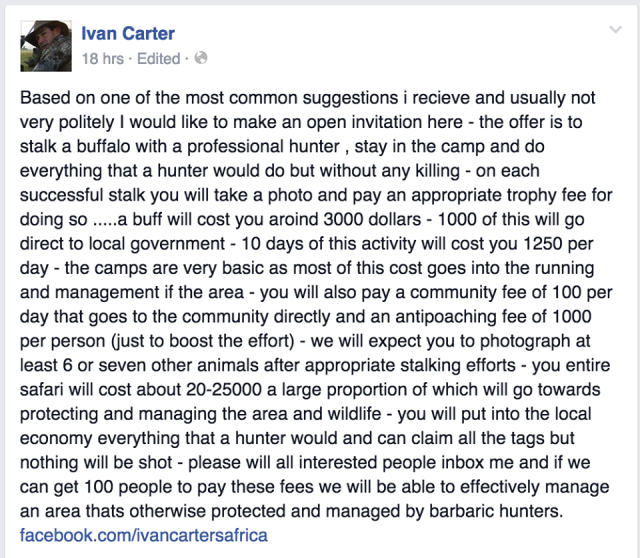After a clean kill, African game-hunters defend the right to shoot
2015-07-07 09:28
Iwamanzi - Adri Kitshoff aims her gun at the antelope and pulls the trigger. Killed in an instant, the animal collapses to the ground.
The hunter rests her chin on the gun and closes her eyes in a silent prayer of thanks that the animal did not suffer.
Kitshoff, aged 57, has shot many such animals before but, as she goes to the corpse, her hands begin to tremble.
"If I would ever become blas when I've taken an animal, that day would be my last day hunting," said Kitshoff, stroking the dead blesbok's white face and brown coat.
Kitshoff, director of Phasa, the professional hunters association of South Africa, knows that not everyone shares her passion for hunting.
Yet she is determined to prove that hunters in South Africa are an integral part of conservation efforts.
Her argument is a simple one, hunters come to Phasa from all over the world willing to pay tens of thousands of dollars to track and kill buffalo, lion and elephants in African countries where trophy hunting is legal.
These hunters pay big money in order to hunt.
A 20-day lion hunt, for example, can cost $90 000.
Some of the money goes back into the reserves, in what hunters describe as a virtuous cycle that enables people to maintain large tracts of land where animals can roam free.
"If practised in a sustainable manner, that is to say by not killing more animals that nature creates hunting protects wildlife and the environment," says Hermann Meyeridricks, the president of Phasa.
"Without sustainable use, there is no incentive to preserve vast natural areas, not for landowners or for the people."
In South Africa, hunting is only allowed on private reserves, not in national parks like the Kruger.
On a cool, sunny afternoon in June, Kitshoff spent hours tracking different animals in the Iwamanzi reserve in North West Province.
Her code of ethics dictates that she does not shoot out of the Land Cruiser as it crosses the savannah.
As a result, several potential prey have fled before Kitshoff succeeds in approaching one close enough on foot.
Finally, she spots the perfect animal: an old solitary male, distinguishable by the white circles on his horns indicating his advanced age, and soon it is dead with a single shot.
"Hunters are not violent people who like to kill," said Meyeridricks.
"Hunting is an experience that brings you closer to nature. You must know how to interpret the bush. You have to immerse yourself to the point of being part of the ecosystem."
Despite their efforts to explain their side of the argument, hunters are facing more and more pressure.
This year, two major airlines, South African Airways and Emirates Airlines, banned transport of elephant, rhino, lion and tiger trophies.
In March 2015, Australia also outlawed the import of lion trophies.
Such policies make hunters furious.
"Africa doesn't have the luxury to argue these things from a very isolated European perspective," said Meyeridricks.
He says that it is not only the animals that need to be taken into account but also the surrounding communities who benefit from the hunting industry.
"For wildlife to manage to survive and to thrive on this continent, African communities need to have some sort of benefit, and the only benefit they can have from wildlife is financial."
Meat for eating
According to the South African environment minister, the legal hunting industry generates about R6.2bn a year.
Several of the large environmental organisations, including the World Wide Fund for Nature (WWF), support hunting, as long as the outfits follow legal, sustainable and ethical practises.
Back at Iwamanzi, the blesbok is positioned on its belly, with its legs folded under the body, and its snout resting on the ground.
Taking her place behind the animal, Kitshoff poses for a photo.
Afterwards, the antelope will go to slaughtering facilities on the farm, where its hide and skull will be used for trophies and its meat will be processed ready to be eaten.
It is photos like these that have earned Kitshoff, Hermann and other hunters death threats against them and their children.
It is a hatred that they say is bred out of ignorance that they hope to overcome.
"I have an option, I can go to a grocery store and pick my meat, or I can come and have a wonderful hunting experience," said Kitshoff.
"Look at animals being taken to abattoirs, and the stress they go through, whereas the animal I've taken today didn't even know I was around, didn't even know he died."
http://www.news24.com/Green/News/After- ... t-20150707Please check Needs Attention pre-booking: https://africawild-forum.com/viewtopic.php?f=322&t=596



